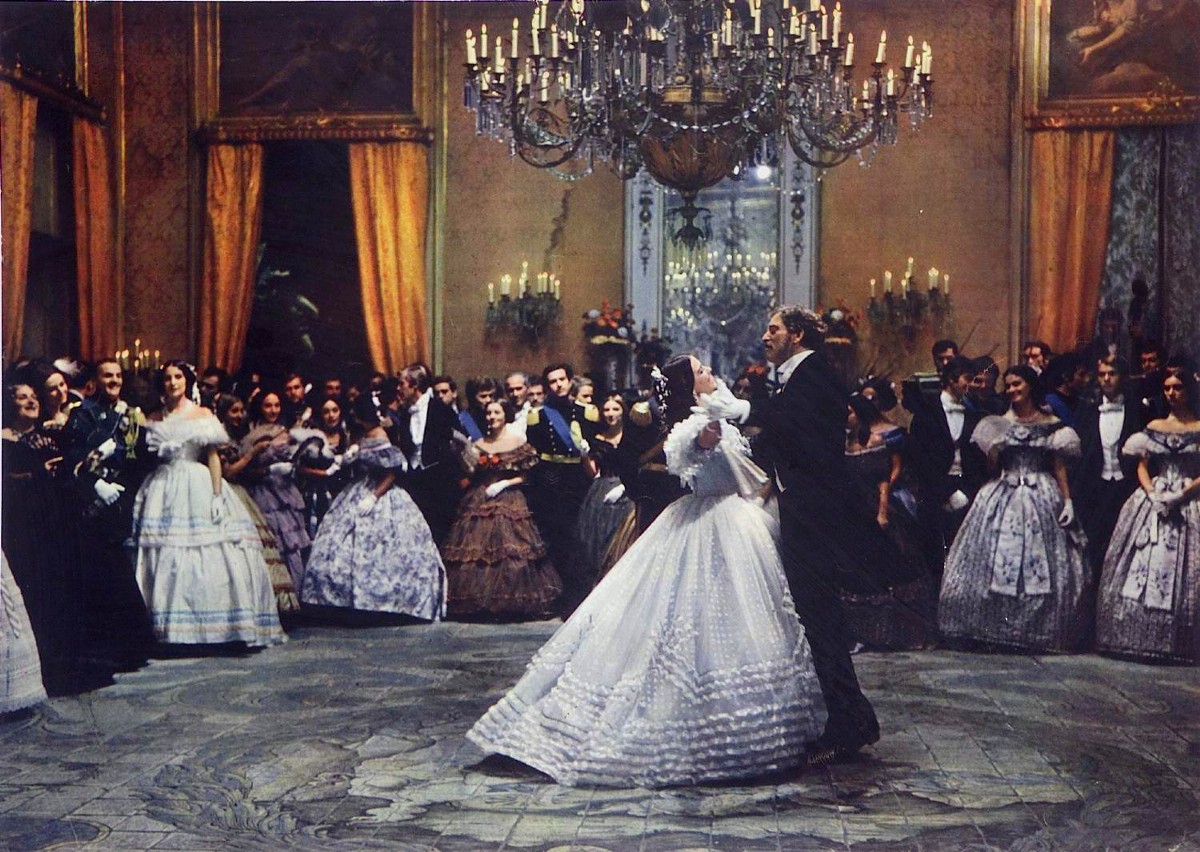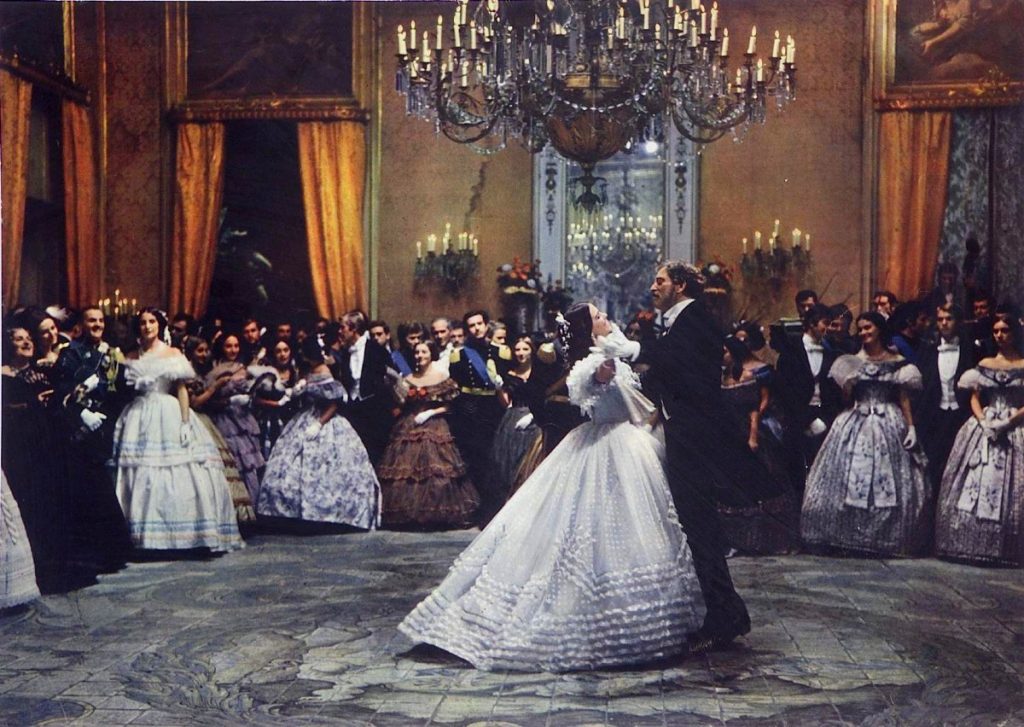

This week I can heartily recommend another entry on the Vatican list of notable films, The Leopard (Il Gattopardo in Italian), and its sumptuous glances into the lives of an aristocratic family set against the backdrop of the Risorgimento, or birth of the modern Italian nation.
Both epic and intimate in scope, the film relays the significance of this epochal transition in history by conveying its impact upon a single extraordinary individual, His Excellency, Don Fabrizio Corbera, Prince of Salina.
Opening with the image of a sun-baked Sicilian country palace, the film’s first spoken words are those of the rosary recited by the members of the manor’s upper crust household assembled in an ornately painted room before a private altar.
The family’s prayers are interrupted by the discovery of a dead soldier in the garden, however, and shortly thereafter a letter arrives announcing the landing of revolutionary military forces on the shores of Sicily.
Major changes are afoot.
Don Fabrizio, played with regal panache by an elegantly middle aged Burt Lancaster, wishes to treat such developments with equanimity, but his impetuous nephew Tancredi insists on taking a more active role. He rushes off to join the revolutionaries, discerning in them a counterintuitive set of allies against the bourgeois politicians who would democratize the coalescing civil state.
“Unless we take a hand, they’ll foist a republic upon us,” Tancredi insists. “For things to remain the same, everything must change.”
The themes of continuity and change persist throughout the film’s stately, nostalgic immersion in the final days of the Italian ancien regime.
For instance, after meeting Angelica, the beautiful daughter of the town’s newly elected mayor played by a young Claudia Cardinale, Tancredi abandons his pursuit of a marriage among his social equals and proposes instead to this representative of the rising nouveau riche.
The symbolism of this union is really at the heart of the story, and is expressed most poignantly in the voluptuous and justifiably famous ballroom scene that occupies most of the final third of the film’s three hours.
Filmed over four weeks and involving more than four hundred actors arrayed in full period dress, the opulence of this “gold standard of ballroom scenes” is such that the film ended up bankrupting the production company.
At the level of the story, the sequence provides an opportunity for Don Fabrizio to come to terms with the sweeping sociopolitical recalibrations unfolding before his eyes.
Taking in at a glance the doll-like, homely scions of the elite – “These frequent marriages between cousins do not improve the stock … They look like monkeys ready to clamber up the chandeliers” – the prince contrasts them with the sparkling beauty yet unrefined social bearing of Tancredi’s fiancée, whom he describes as a white swan in a pool of frogs.
Then Don Fabrizio and Angelica waltz.
It is a compelling dramatic moment, and the last dance, literally, for these characters, but also the first dance, figuratively, for the classes they represent in the history of the nation. Don Fabrizio, standing in for the old regime and its ancient fading glory, circles here in poised, delicate union with the daughter of the wealthy social upstarts presently ushering in a more egalitarian era.
The significance of the film’s title here comes into play, and recalls a conversation between Don Fabrizio and a visitor to his palazzo from the newly forming parliament.
“We were the leopards, the lions. Those who will take our place will be jackals, hyenas,” the prince observes. “I belong to an unfortunate generation, straddling two worlds, and ill at ease in both.”
Romantic, nostalgic, and plaintively gorgeous, Don Fabrizio’s melancholic lament suggests that no matter how much appears to change, even amidst the far reaching innovations occurring all around him, things eventually come round and remain more or less the same.
The conclusion of the film finds Don Fabrizio exiting the ball, standing alone beneath the stars, and quietly appealing to them for an appointment with something more lasting than the ephemera of his world.
A child ringing a bell walks past, heralding the village priest who carries the blessed sacrament to someone requiring last rites.
Why watch The Leopard?
Along with its entrancing, almost overwhelmingly baroque farewell to an all but forgotten world of privilege and refinement, it might also provide a sense, however fleeting, of that true gentility and proper princeliness fitting to all those who are brothers and sons, sisters and daughters of the Prince of Peace and King of Kings.
From the fleeting aristocratic prerogatives of a Don Fabrizio, prince of this earth, we might discern a hint of that real regality that reigns everlastingly in heaven – especially when they are admired, not simply as ends in themselves, but as icons of a more complex and counterintuitive kind of kingship that encompasses, exceeds, and periodically, history suggests, overturns them.
